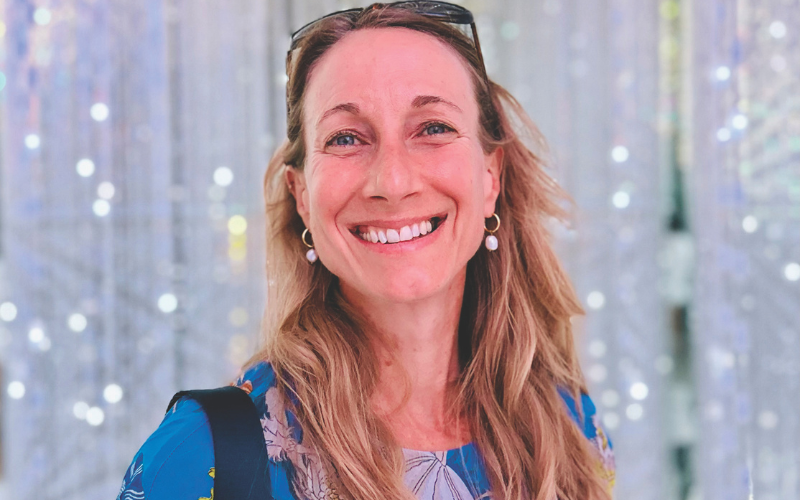
I’m Jo, a 48-year-old fitness consultant, and I live in Camberley, Surrey, with my husband, where I run my private fitness practice. I have one child, my son, who is 25, and he means the world to me.
I am also a proud ostomate and in 2019, I had colostomy surgery. My journey to having stoma surgery began over two decades ago, in 1998, when I was induced to deliver my son. I was 22 and he was a large baby, which had been missed before the induction. His size, combined with an accelerated delivery from Prostin, led to me sustaining a significant perineal injury, which was misdiagnosed as a 2nd degree tear by the midwife.
Two years after giving birth, I started experiencing urgency and faecal incontinence. It became clear that my tear was most likely a missed 3rd-degree tear, known as an Obstetric Anal Sphincter Injury (OASI), which affects the anal sphincter muscles crucial for bowel control and continence.
This oversight meant I missed the opportunity for surgical repair at the time of the birth, a procedure that could have vastly improved my long-term quality of life and overall health.
My injury left me with severe pelvic floor dysfunction, stress urinary incontinence, prolapses and faecal incontinence, which required over two decades of treatments, interventions, and multiple surgeries.
Despite trying neuromodulation (a treatment involving an implanted device similar to a pacemaker that stimulates the sacral nerves controlling bladder and bowel function) and daily rectal irrigation, my faecal incontinence was still greatly impacting my life.
My ability to work was dwindling, and I found myself becoming increasingly housebound. I had to relinquish my part-time role as a specialist cardiac rehabilitation instructor within the NHS and a charity, which I had juggled between multiple surgeries for over a decade.
After careful consideration, I decided to undergo a Hartmann’s colostomy surgery 21 years after my son’s birth.
Stoma surgery had been suggested previously, but at the time, I was hesitant due to the negative portrayal by my consultant, which left me terrified. However, my perspective shifted after befriending an ostomate who shared their journey with me, including experiences of both ileostomy and colostomy, as well as dealing with a parastomal hernia. Visiting a stoma support group also proved invaluable, allowing me to openly discuss concerns and learn from others’ experiences, showing stoma in a positive light.
While childbirth-related injuries leading to stoma surgeries are less common, the resounding message I heard from fellow ostomates was their wish for earlier intervention, a sentiment I now echo.
Since undergoing stoma surgery, I have regained the freedom and confidence I was missing; I am no longer constrained by incontinence.
I have embraced new opportunities that have allowed me to grow personally and professionally. Channelling my inner athlete, I joined a competitive swimming club in 2021 and in 2022, I fulfilled my ambition to complete my yoga teacher training qualification.
I’ve taken on personal challenges to raise money for charities supporting women injured in childbirth and ostomates. I completed a 33-kilometre indoor rowing challenge and hiked The Welsh Three Peaks, where the toilets were closed.
Travelling to Australia this year to visit family was a significant milestone, only made possible by my stoma, allowing me to make such an epic journey.
My experience of rehabilitation and recovery has given me a specialist interest and expertise in Women’s Health, pelvic floor dysfunction and childbirth injury. I’m dedicated to raising awareness about severe childbirth injuries and supporting women affected by these injuries. Through my advocacy work and involvement with the charity MASIC, I lead a support group in Surrey and offer guidance to those facing stoma and other surgeries due to childbirth injuries.
In October 2025, I’ll take on my biggest challenge yet: scaling Kilimanjaro with the charity Chameleon Buddies and joining their ‘Climb Kili’ team to raise crucial funds to build a designated stoma clinic to support women in Kenya with stomas following birth injury.
I’ve finally found a new normal and living with my stoma. Although it’s not perfect, it’s liberated me from the life I was living before, and I aim to make the most of it.
